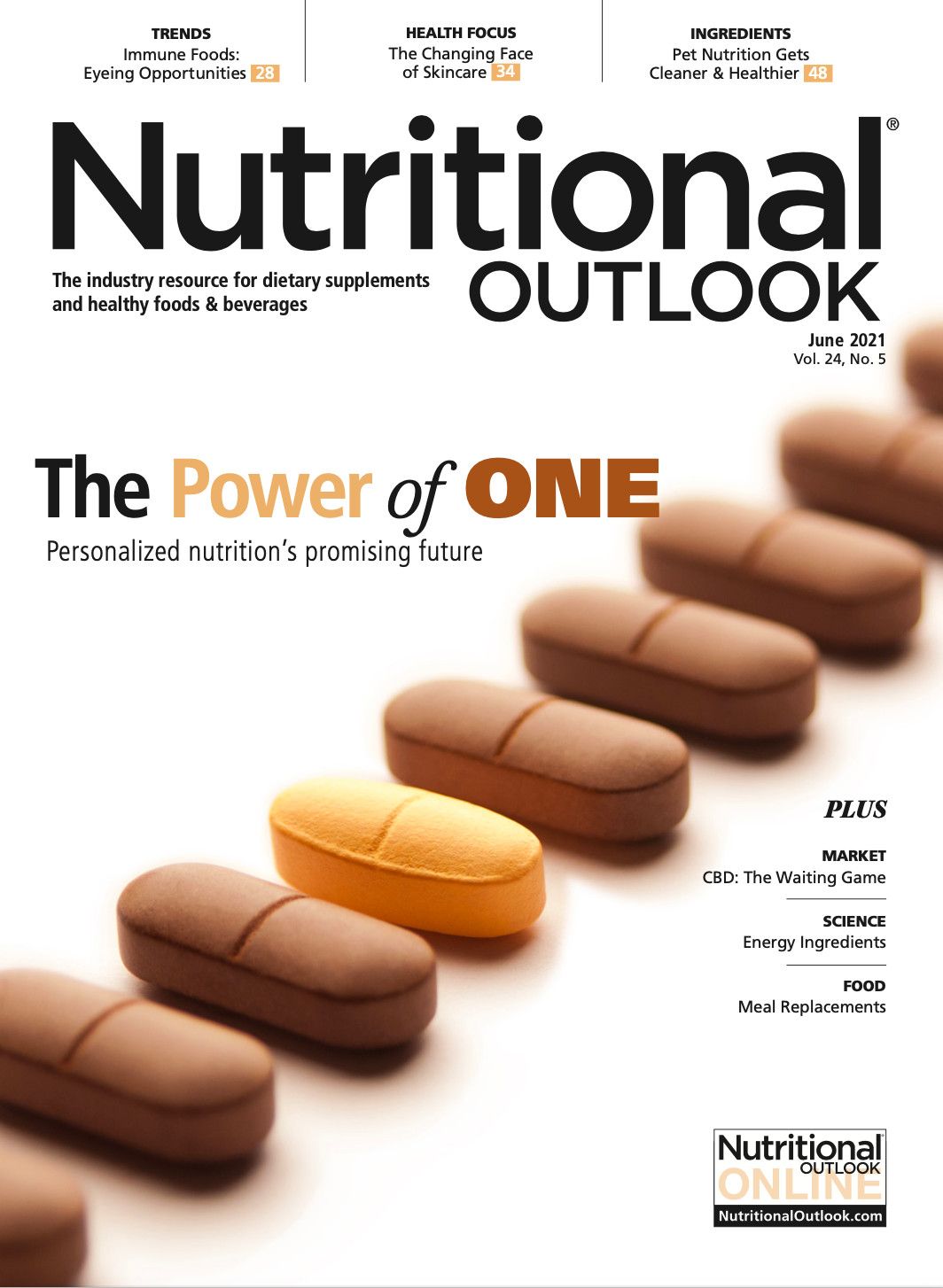CBD Playbook: What one company is doing while awaiting future hemp and CBD guidance
Lack of regulatory guidance makes hemp extracts a waiting game, with companies hedging their bets.
Sales in the U.S. hemp marketplace are growing, and new legislation suggests the possibility of a future with increasing legalization and guidance. Just a few months ago, HR 841, the “Hemp and Hemp-Derived CBD Consumer Protection and Market Stabilization Act of 2021,” was introduced to U.S. Congress. If passed, the act would make hemp and ingredients derived from hemp lawful dietary ingredients that can be used in dietary supplements. HR 841 already had bipartisan support from 23 cosponsors at the time of this writing, including representatives from hemp-producing states such as Oregon, California, and Kentucky. Shortly after HR 841’s introduction, Congress passed the SAFE Banking Act to legitimize hemp-related businesses by providing regulatory clarity to banking service providers.
Though these new pieces of legislation may bode well for a future hemp cannabinoid ingredients market, much uncertainty still remains, and FDA’s stance on hemp cannabinoid ingredient safety is limited. Currently, the agency upholds the safety of hemp seeds, hemp seed oil, and hemp seed protein because they contain negligible amounts of cannabinoids tetrahydrocannabinol (THC) and cannabidiol (CBD). In 2018, companies received favorable “no questions asked” responses to Generally Recognized as Safe (GRAS) petitions for these ingredients, but products standardized for significant levels of CBD, which are generating most consumer interest, have not received formal approval from FDA. Until that happens, some companies are still selling these products on the dietary supplement market.
Various players in the hemp ingredients market are hoping to gain continuing leverage in the market by making calculated estimations as to what the legalization path will be and how they can best prepare for it.
Hemp Extracts vs. CBD
Because CBD is already marketed as a drug (Epidiolex for child seizures), U.S. law stipulates that the ingredient cannot be sold as otherwise. For this reason, some dietary supplement companies in the U.S. are marketing full-spectrum and broad-spectrum hemp extracts. These extracts contain CBD as well as numerous other constituents found in hemp naturally. They are not, like the drug, pure isolated CBD. It’s important to note this distinction so as not to confuse hemp extracts with pure CBD. Unfortunately, media and consumers often confuse the terminology.
Unless FDA grants an exemption for CBD, the isolated compound in theory cannot be sold as a standalone product due to its preexisting drug status. Still, there is a clear need for FDA to clarify the differences through proper guidance on how to conduct business with CBD versus full- and broad-spectrum extracts. “A full-spectrum hemp extract is not a drug,” says John Endres, chief scientific officer at AIBMR Life Sciences (Seattle). “That’s like saying willow bark is the same thing as aspirin because it has the compound that aspirin is made of, salicylic acid. And that’s kind of a ridiculous argument.”
Hedging Bets
With the health products industry squarely focused on the sale of hemp extracts, some companies are working to increase the safety standings of their products voluntarily. Klersun (Portland, OR), a B2B hemp extract supplier, completed GRAS self-determination status for its broad-spectrum hemp extracts in partnership with the hemp retail products company Manitoba Harvest (Winnipeg, Canada) and fragrance maker Robertet (Paris). GRAS self-determination requires no official filing with FDA. Obtaining GRAS status can assure the market of the safety of ingredients intended for use in foods and beverages, but it has also historically been used as an alternative route into dietary supplements. The other route into dietary supplements is via a New Dietary Ingredient Notification (NDIN), which requires information submitted to FDA on an ingredient’s reasonable expectation of safety.
Later this year, Klersun expects to complete the work required for an NDIN relating to its broad-spectrum hemp extracts. With it, Klersun is making another significant financial investment atop its existing GRAS status.
Reed Doyle, the company’s director of sales and business development, believes that having an NDIN will increase his company’s likelihood to meet future safety expectations of FDA and major retailers, whatever they may ultimately be. To further its approach, Klersun’s focus for the retail market is with broad-spectrum hemp extracts. Unlike full-spectrum hemp extracts, which are allowed to have no more than 0.03% THC, broad-spectrum extracts are specially formulated to contain even lower levels of THC.
Submissions Pending
Even with Klersun’s plans to complete an NDIN later this year, there’s no telling if the company will formally submit its NDIN before FDA first clarifies the law and guidance. Numerous players in the industry have speculated that submitting NDINs at this stage could result in automatic FDA rejections due to the current ambiguity of regulations.
It’s a wait-and-see situation with hemp extracts, CBD, and NDINs. In the meantime, industry can only wait and do their due diligence of confirming the safety of their ingredients on their own accord.

Prinova acquires Aplinova to further increase its footprint in Latin America
April 7th 2025Prinova has recently announced the acquisition of Brazilian ingredients distributor Aplinova, which is a provider of specialty ingredients for a range of market segments that include food, beverage, supplements, and personal care.





















